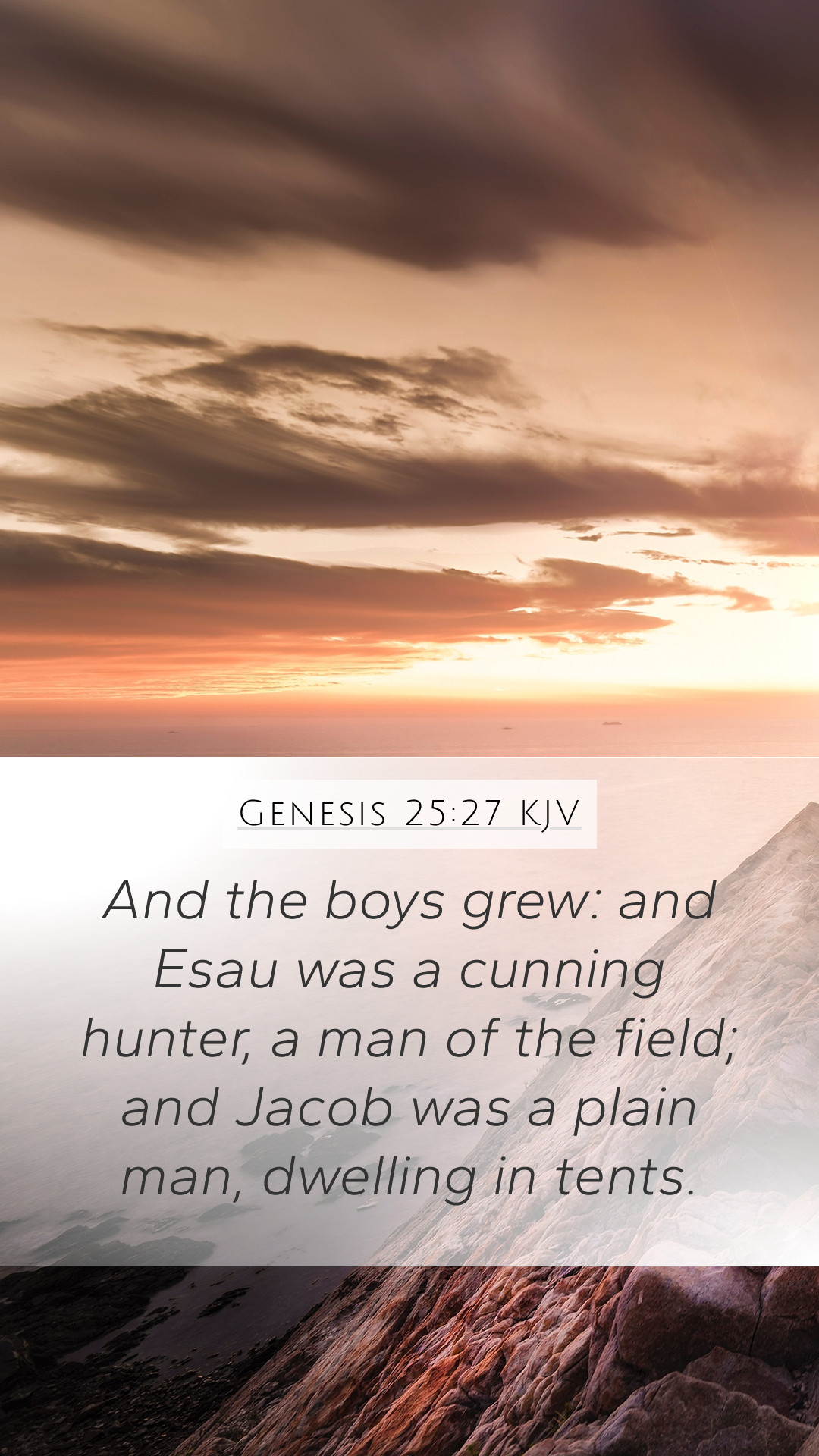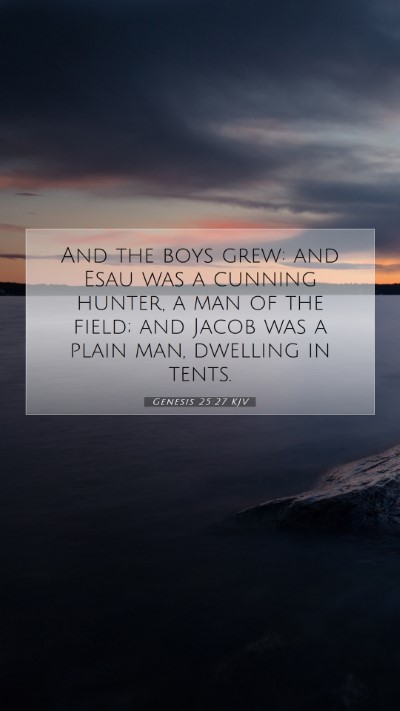Understanding Genesis 25:27
Genesis 25:27 states, "And the boys grew: and Esau was a cunning hunter, a man of the field; and Jacob was a plain man, dwelling in tents." This verse introduces us to the contrasting characters of the twin brothers, Esau and Jacob, and their differing lifestyles, which have significant implications throughout the narrative of the Bible.
Bible Verse Meanings
The meaning of this Bible verse encapsulates the development of Esau and Jacob into distinct individuals, representing two divergent paths of life. Here, we gather insights from esteemed public domain commentaries to delve into the bible verse meanings and bible verse interpretations.
Character Study of Esau
- Nature of Esau: Esau is described as a "cunning hunter," indicating his skills and admiration for the rugged outdoors, symbolizing a life led by instinct and earthly pursuits.
- Symbolism of Hunting: The scripture highlights his prowess in hunting, which signifies vitality and bravery but also points to a life driven by immediate gratification and physicality.
Character Study of Jacob
- Nature of Jacob: Jacob is depicted as a "plain man" or "a quiet man," implying peacefulness and stability. His choice to dwell in tents is reflective of a more contemplative and domestic lifestyle.
- Symbolism of Tents: The tents symbolize a transient life common among nomadic peoples, yet they also suggest a desire for deeper connections and spiritual pursuits rather than mere physical indulgence.
Scripture Analysis
The differences between Esau and Jacob set the stage for the unfolding events of Genesis, where familial and divine destinies intertwine. This bible verse commentary analyzes how these early characteristics foreshadow their later actions and the prophetic implications of their lives.
Thematic Elements
- Cultural Context: In the historical context of the time, being a skilled hunter (like Esau) was often revered, while a more domestic life (like Jacob) was less celebrated. This reflects the values of the surrounding cultures.
- Divine Purpose: The setting of characters serves God's ultimate purpose, hinting at the larger narrative involving the birthright and the promise given to Jacob, which plays out in subsequent chapters.
Biblical Exegesis
In conducting an exegesis of this verse, it is essential to explore how the identities of Jacob and Esau contribute to our understanding of God's sovereignty and plan for Israel within the Old Testament. The understanding Scripture here encourages readers to look beyond mere character traits to the larger narrative of redemption.
Application of Biblical Lessons
The contrasting paths of Esau and Jacob provide vital lessons for personal reflection. This bible verse explanation invites readers to consider questions such as:
- How do our choices reflect our priorities in life?
- Are we more like Esau, living for the moment, or like Jacob, seeking lasting values?
- What does it mean to engage in a life of faith versus a life of earthly pursuits?
Related Bible Cross References
- Malachi 1:2-3 – A reference highlighting God's choice of Jacob over Esau.
- Hebrews 12:16 – A warning about Esau's impulsiveness regarding his birthright.
- Romans 9:10-13 – Paul's commentary on God's purposes concerning the brothers.
Bible Study Insights
For those engaging in bible study groups or looking for bible study tools, Genesis 25:27 offers rich material for discussion. It provides an opportunity to explore themes of choice, identity, and God's leading in our lives. Resources may include:
- Bible study guides that delve into character studies of biblical figures.
- Bible study lessons on the importance of our choices and their long-term effects.
- Bible study materials focusing on the contrast of spiritual and worldly pursuits.


